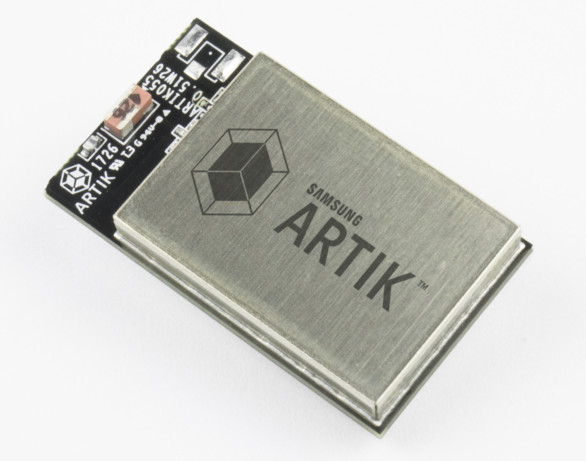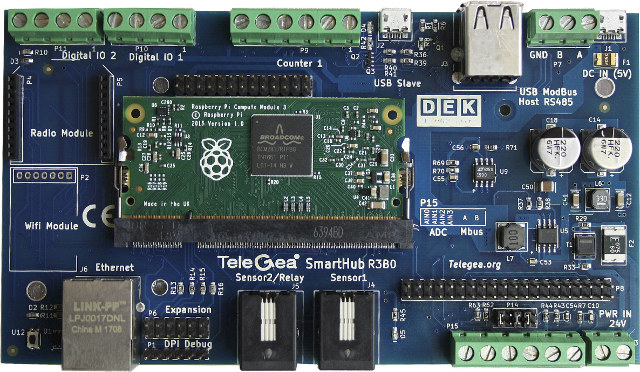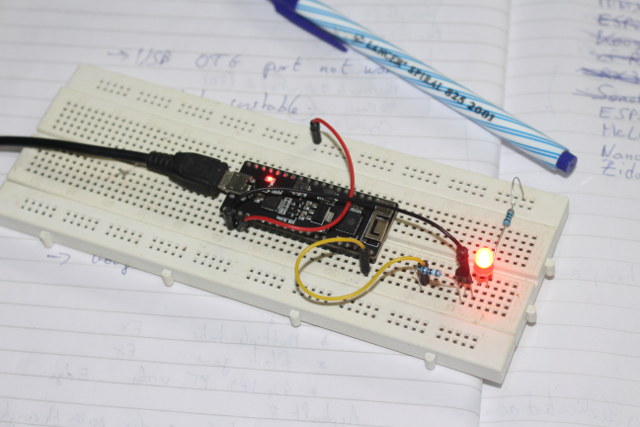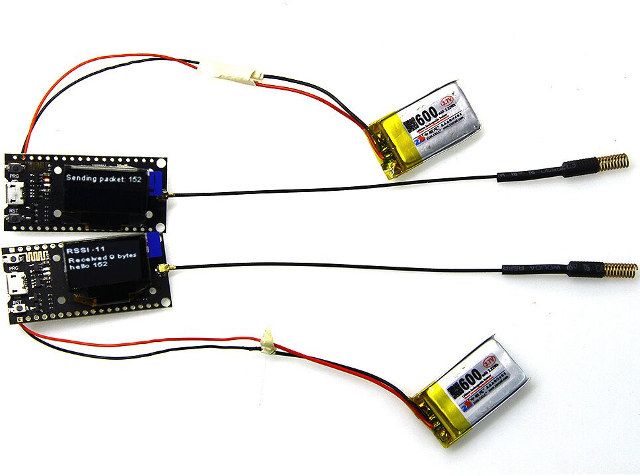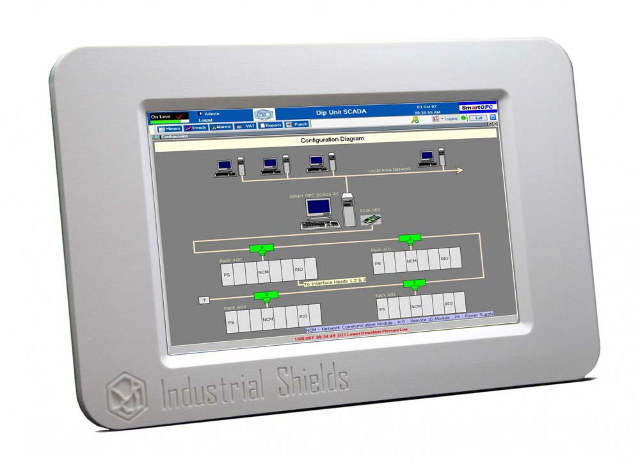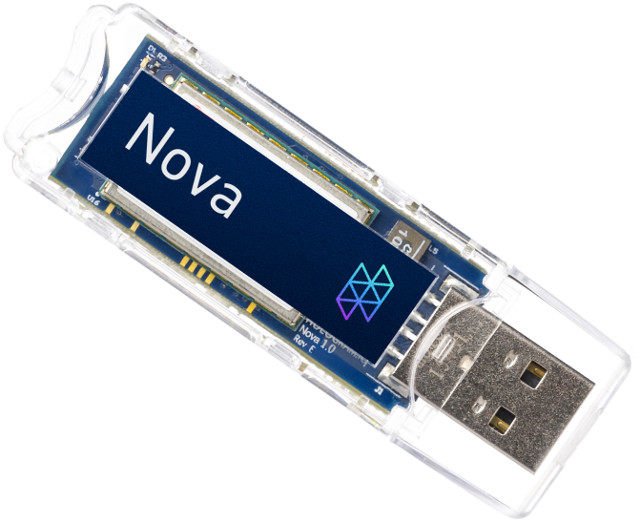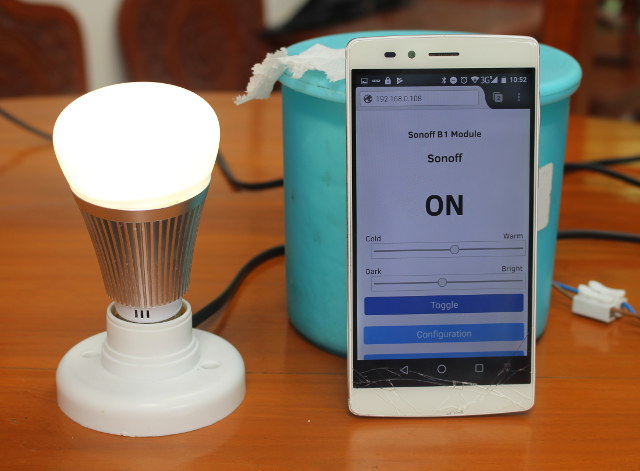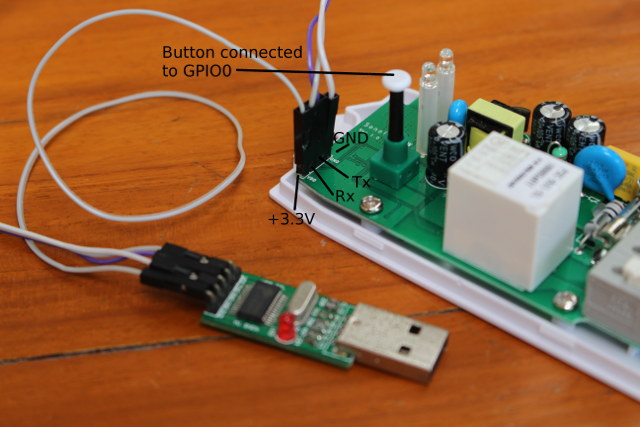Samsung has made several announcements with IoT, especially IoT security. First, Samsung ARTIK 053, ARTIK 530 and ARTIK 710 modules are getting an “s” version, which stands for “robust security”, as well as a new ARTIK 055s module, and all ARTIK modules can now work with SmartThings Cloud uniting the company’s existing services – ARTIK Cloud and Samsung Connect Cloud – into a single IoT platform. Separately, the company announced their Secure Element solution which combines eFlash memory and new security software. Samsung ARTIK “s” modules & ARTIK 055s The company explains in their blog that ARTIK 053s, 530s, 710s, and the all new 055s will feature “advanced protection, integrated cloud services, and hosted security services with “enhanced ARTIK end-to-end security by providing greater protection for IoT data as well as prevention against hacking”. The press release is a little more specific: ARTIK secure IoT modules provide a strong root […]
Telegea Smart Hub DIN Rail IoT Gateway is Powered by Raspberry Pi CM3 Module
DEK Italia has recently introduced Telegea Smart Hub, an IoT gateway based on Raspberry Pi Computer Module 3 (CM3) with Ethernet, WiFi, RS232/485 ports, and various other I/O ports, that can leverage Raspberry Pi software ecosystem. The company explains the device is mainly targeted at DIY home automation applications as a smart home controller which runs open source smart home software like OpenHAB and Home Assistant, but it can also be used for many other IoT applications. Telegea Smart Hub R3B0 specifications: SoC – Broadcom BCM2837 quad core Cortex A53 processor with VideoCore IV GPU System Memory – 1GB LPDDR2 RAM Storage – 4GB eMMC flash, 256 byte EEPROM Connectivity – 10/100M Ethernet port, optional Wifi 802.11 b/g/n at 2.4 GHz Serial – RS485 serial port, RS232 serial debug port USB – 2x USB 2.0 host ports Expansion 6xdigital inputs via screw terminals (for dry contacts or S0 interface) 4x […]
Getting Started with MicroPython on ESP32 – Hello World, GPIO, and WiFi
I’ve been playing with several ESP32 boards over the months, and tried several firmware images. I started with a tutorial for Arduino Core on ESP32, a few month later I tested ESP32 JavaScript programming with Espruino on ESPino32 board, and recently Espressif Systems sent me ESP32 PICO core development board powered by their ESP32-PICO-D4 SiP, and while I took some pretty photos, I had not used it so far. So I decided to go with yet another firmware, and this time, I played with MicroPython on ESP32, and will report my experience with basic commands, controlling GPIOs, and WiFi in this getting started post. Flashing Micropython Firmware to ESP32 Board Source code is available on Github, as a fork of MicroPython repo as ESP32 support has not been upstreamed yet. We could built the firmware from source, but there’s also a pre-built binary which you can download on MicroPython website. […]
This TTGO Board Combines ESP32, LoRa Radio, and OLED Display for just $10
Just one year ago, it would cost around $15 to $20+ to get an ESP32 board, that is if you were lucky/fast enough to order one one before it went out of stock. Since then, availability is no longer an issue, and you now can get an ESP32 development board for as low as about $7, or even around $4 during promotions. Today, I was made aware of another board sold under the “TTGO” brand, that includes not only ESP32 WiFi and Bluetooth SoC, but also a (433 MHz) LoRa radio, and an OLED display. Price? Just $10 plus shipping ($1.75 here). TTGO ESP32/LoRa board specifications: WiSoC – Espressif ESP32 Storage – 32MB on-board flash (or maybe just 16MB?) LoRa Semtech SX1278 with u.FL connector + 433MHz antenna (N.B.: Antenna must be connected during use or the Semtech chip could be damaged) Sensitivity” ~ -148dBm; output power: +20dBm Display – […]
Industrial Shields Industrial Panel PCs are Based on Raspberry Pi, Banana Pi, or HummingBoard
Boot&Work Corp., S.L. is a company based in Catalonia that sells industrial automation electronic devices under “Industrial Shields” brand. What makes their product noticeable is that they all appear to be based on maker boards such as Arduino or Raspberry Pi. The company offers various Arduino based PLC modules with or without Ethernet that can be controlled with 10.1″ industrial grade panel PCs based on ARM Linux development boards. Currently three sub-families are available: HummTOUCH powered by Solidrun HummingBoard-i2 NXP i.MX 6Dual Lite board BANANATOUCH with either Banana Pi M64 (Allwinner A64 quad core Cortex A53) or Banana Pi M3 (Allwinner A83T octa core Cortex A7) TOUCHBERRY with Raspberry Pi model B or Raspberry Pi 3 model B Beside the different processors, the 10.1″ Panel PCs share some of the same specifications: Display – 10.1″ resistive multitouch LVDS, 315 nits, 170° viewing angle, 1280×720 resolution Video Input – MIPI CSI […]
Hologram Unveils Nova 3G USB Dongle and Python SDK; 200 Raspberry Pi Zero W Kits Given Away to Developers
This summer I discovered Hologram global cellular IoT SIM card, and since they provided free developer samples with 2MB of monthly data includes, I decided to get one to try it out. I received it a few weeks later, and to my surprise it worked, despite my country of residence having some strict requirements with regards to SIM card registration. The SIM card uses roaming, but with a low fixed worldwide pricing, and does not come with a phone number by default, so maybe that’s why I did not have to register. The company is now back with Nova, an open source hardware cellular modem certified by OSHWA (ID #US000077). It’s basically 2G/3G USB dongle that’s controlled by Hologram Python SDK, specifically suited to Debian systems like Raspberry Pi 3 or BeagleBone Black. Hackster.io is also involved in the launch with a worldwide contest offering 200 free kits comprised of […]
Review of Sonoff B1 Smart RGB Light Bulb – Part 2: Sonoff-Tasmota Firmware
I’ve already reviewed Sonoff B1 light bulb using the stock firmware combined eWelink app for Android, and as promised in the first part of the review, I’ve also tested the ESP8285 based WiFi light bulb with Sonoff-Tasmota open source firmware, and report my findings in this new post. Before we can play with the new firmware, we need to install it, and I’ve just explained how to upgrade Sonoff devices to Sonoff-Tasmota firmware either using some soldering skills and a USB to serial board, or some network configuration skills and perform an OTA update using ITEAD Studio/eWelink original firmware update mechanism. So for this part of the review, I’ll assume we have just freshly update the light bulb with Sonoff-Tasmota using the binary images released by the developer. First, you’ll need to find the IP address of the light bulb with your router or tools like nmap or arp, and […]
Upgrading Sonoff Stock Firmware to Sonoff-Tasmota – USB to Serial, and OTA Update Methods
This post was initially supposed to be part 2 of Sonoff B1 light bulb review, where I would have explained how easy it was to use OTA mechanism to update to Sonoff-Tasmota open source firmware, and shortly show about its features and capabilities. However, it took me over 10 hours to make that work, mostly due to misunderstand in the documentation, and time spent to configure routers. I also failed the first time with Sonoff B1, so I used the serial console method, and instead managed to use SonOTA method with Sonoff POW switching from stock firmware to Sonoff-Tasmota without having to solder or tear down anything. Updating software with a USB to Serial Board Using a USB to serial board is the most common method to switch from stock firmware to open source firmware such as ESPurna or Sonoff-Tasmota in Sonoff devices or other ESP8266 based devices. It’s quite […]


